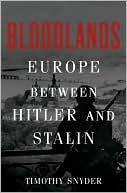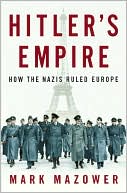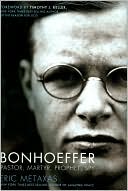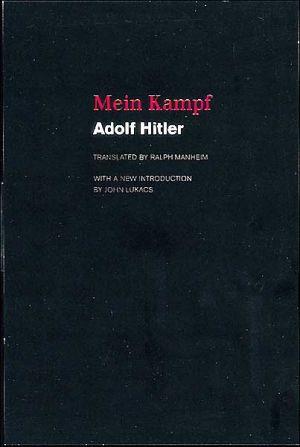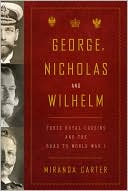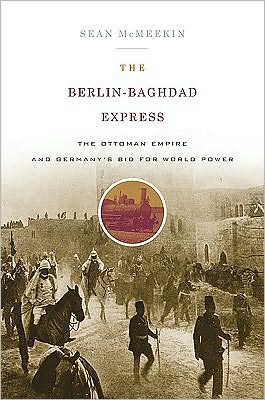Nazis: A Warning from History
A new edition of the lavishly illustrated companion to the BBC documentary, with rare archival material and photographs documenting the reality of daily life in Nazi Germany.\ \ Published in conjunction with the History Channel and the BBC, this prizewinning volume, now back in print, contains previously unpublished material and photographs documenting the reality of life under Nazi rule and the evolution of the ruthless slaughter of millions of people in Germany.\ \ In this handsome edition,...
Search in google:
A new edition of the lavishly illustrated companion to the BBC documentary, with rare archival material and photographs documenting the reality of daily life in Nazi Germany.Published in conjunction with the History Channel and the BBC, this prizewinning volume, now back in print, contains previously unpublished material and photographs documenting the reality of life under Nazi rule and the evolution of the ruthless slaughter of millions of people in Germany.In this handsome edition, BBC producer and renowned historian Laurence Rees has collected the testimonies of more than fifty eyewitnesses, many of whom were committed Nazis, free to tell their stories only after the fall of the Berlin Wall. Rees offers us the compelling voices of soldiers and civilians rarely heard from—including a remorseless Lithuanian soldier who shot five hundred people and then went out to lunch, and the anguished older sister of a ten-year-old developmentally disabled boy selected for "immunization injection" (a fatal dose of morphine) at a children's hospital. These materials cast a harsh new light on the rise and fall of the Third Reich. Publishers Weekly Rees, head of the BBC's history programming division, has drawn on newly available archival material and about 50 interviews he conducted with "eyewitnesses" to present a chilling crash course on the Nazis' chaotic rule. According to the author, despite the Germans' much-vaunted reputation for efficiency, Hitler's regime was largely an improvisation, with his underlings ever striving to do the Fhrer's bidding. Rees traces how measures affecting countless lives, e.g., establishing ghettos for Jews, were often decided haphazardly, with Hitler instructing subordinates, who were frequently bitter rivals, to "sit down together and when you've made up [your minds about a policy], come and see me." Though most Gestapo files were destroyed before war's end, one revealing discovery from intact archives in the town of Wrzburg indicates that the secret policefar from randomly unleashing terrorspent much of its time responding to denunciations by ordinary citizens against their neighbors. An interesting focus of this book is on perpetrators of Nazi crimes. Fritz Arlt, a ranking German official in occupied Poland, when asked whether he knew what went on in the concentration camps to which his orders consigned thousands of Poles, conceded only, "They were places where people were concentrated." The inhuman face of the Nazi enterprise is exposed here as a significantly grass-roots construction. Throughout, graphic photos highlight Nazi crimes. (May)
\ Publishers Weekly - Publisher's Weekly\ Rees, head of the BBC's history programming division, has drawn on newly available archival material and about 50 interviews he conducted with "eyewitnesses" to present a chilling crash course on the Nazis' chaotic rule. According to the author, despite the Germans' much-vaunted reputation for efficiency, Hitler's regime was largely an improvisation, with his underlings ever striving to do the Fhrer's bidding. Rees traces how measures affecting countless lives, e.g., establishing ghettos for Jews, were often decided haphazardly, with Hitler instructing subordinates, who were frequently bitter rivals, to "sit down together and when you've made up [your minds about a policy], come and see me." Though most Gestapo files were destroyed before war's end, one revealing discovery from intact archives in the town of Wrzburg indicates that the secret policefar from randomly unleashing terrorspent much of its time responding to denunciations by ordinary citizens against their neighbors. An interesting focus of this book is on perpetrators of Nazi crimes. Fritz Arlt, a ranking German official in occupied Poland, when asked whether he knew what went on in the concentration camps to which his orders consigned thousands of Poles, conceded only, "They were places where people were concentrated." The inhuman face of the Nazi enterprise is exposed here as a significantly grass-roots construction. Throughout, graphic photos highlight Nazi crimes. (May)\ \ \ \ \ BooknewsReed, writer and producer of the BBC television series , presents previously unpublished archival material and photographs documenting how the Nazis came to power and chronicling daily life in Nazi Germany. Annotation c. by Book News, Inc., Portland, Or.\ \

